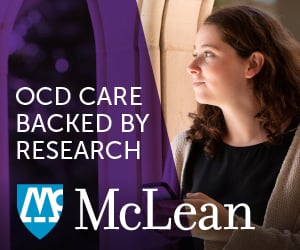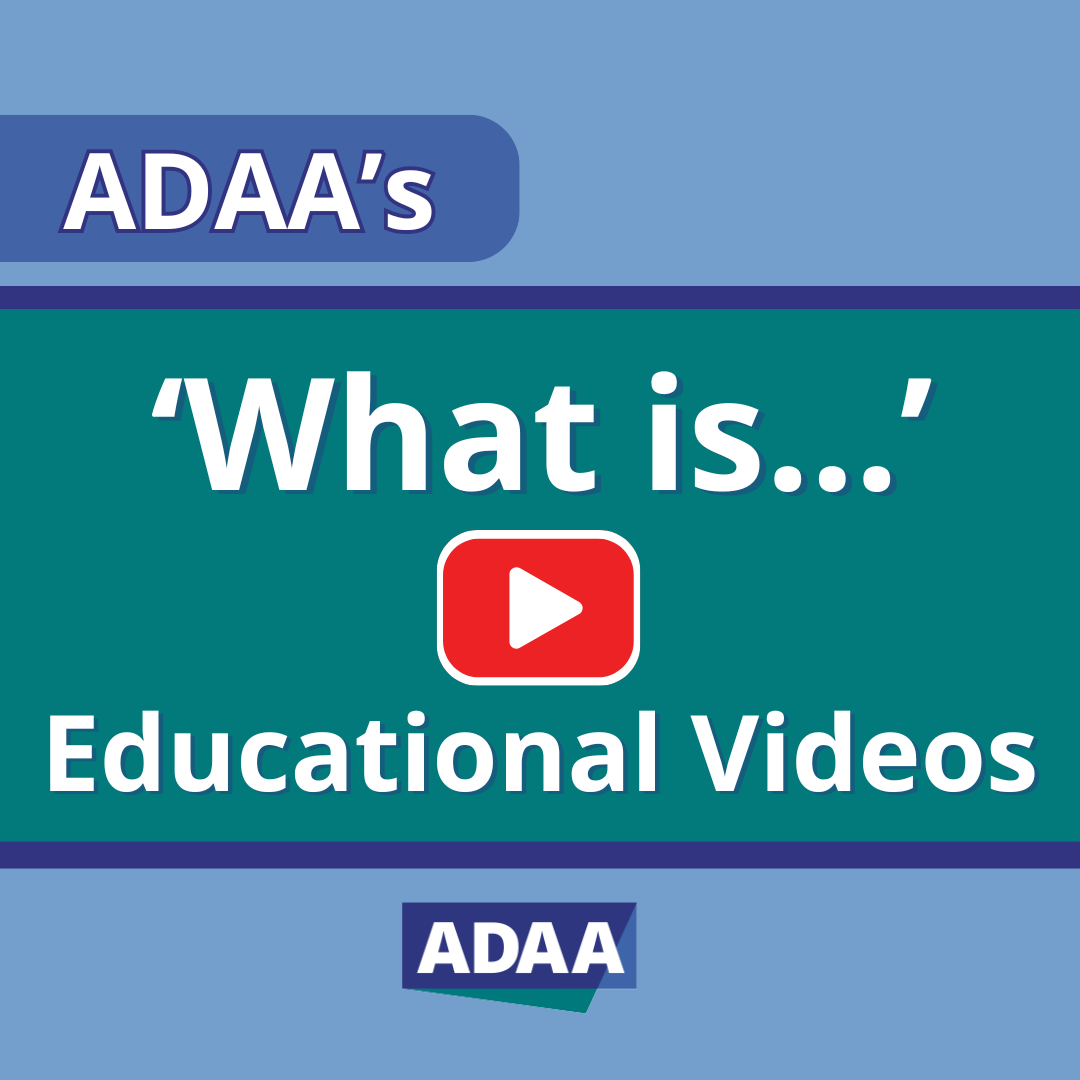
Dr. Ashley Smith is a licensed psychologist, professional speaker, author, and co-founder of Peak Mind: The Center for Psychological Strength. Since earning her PhD in 2007, she has become a sought-after specialist in the treatment of anxiety disorders. She is an outspoken advocate dedicated to changing the way we approach mental health and wellbeing. In addition to direct patient care, she has published a book (The Way I See It: A Psychologist’s Guide to a Happier Life) and several other scholarly and popular writings, including The Building Psych Strength newsletter and blog. She regularly speaks to a variety of audiences and organizations ranging in size from small start-ups to Fortune 5.
Dr. Ashley is also open about living – and learning to thrive – with a rare visual impairment. The combination of her professional expertise and personal experiences put her in a unique position to educate and inspire. She is passionate about using psychology and applied neuroscience to help others live bold, happy lives while performing at their peak.
Boost Search Results June 15, 2018
As a clinical psychologist, I probably think about suicide more often and in different ways than most. I’ve read the research. I’ve been trained to ask the hard questions. I am all too familiar with the frustrating gaps in our knowledge base: what causes it, who is at risk, how do we prevent it? I understand the stigma and misconceptions surrounding it, and I know, firsthand, the collateral damage that stems from it.
May 27, 2011 was the worst day of my life. I lost one of my favorite people on this planet to suicide. This week, sadly, my world was yet again touched by this tragedy, and I feel compelled to write these letters.
To the Grievers,
I feel your pain. I, too, have lost a loved one. I know the initial shock as your mind strives to process the news that seems so unfathomable, so impossible. We know that it happens, but we just didn’t see it coming.
I know the heartbreak that sets in as the shock wears off and you realize that your person is gone. This is not a bad dream. You’re awake, and it sucks. I know the deeper layer of heartbreak that comes with the realization of just how much pain your person must have been in. The weight is crushing.
You’ll want to go down the If Only path, but don’t. That will only result in endless loops of anguish and no real clarity. Know that it is not your fault.
You may be struggling with wanting to understand WHY this happened. Know that you may never fully understand your person’s state of mind or the factors that led to their death. You may never have a satisfactory explanation.
Know that it’s ok if you feel angry, but understand what happened. In the mind of someone who dies by suicide, they are a burden to others and do not belong. You and I know that’s not true, but in their mind, riddled with the insidious lies of Depression, they did not. They believed, TRULY believed that that their existence caused pain and that the world would be better off without them. From their perspective, their last act was a selfless one or one of mercy to end suffering. That’s the tragedy of suicide.
You feel lost and stuck as the rest of the world continues on like nothing has changed…but things will never be the same. The waves of grief that crash over you now, buckling your knees and taking your breath away, will gradually slow down. They will begin to come less often and with less intensity.You’ll find yourself feeling (almost) normal for increasing periods. You’ll stop feeling like you’re drowning, but it will never completely stop hurting.
Know that you WILL be ok. It’s going to hurt…a lot and for a long time. There’s no way around it and no way to avoid it. But know that you CAN get through this loss.
To the Contemplators,
I feel your pain…at least I want to. I want to listen, to wrap my arms around you, to tell you that you are NOT alone, that people care, that this will pass, that life CAN get better, that there IS hope, that NOTHING is unforgiveable or irreversible.
Know that brains lie, and yours is no exception! Question it. Challenge it. Fight back! You DO have worth! Things CAN get better! It will not always feel like this. These thoughts and feelings will pass if you can hang on. You are strong. The fact that you’re still here is a testament to that. Even the strongest need a hand sometime, though, so share your burden (and know that YOU as a person are NOT a burden). It will be easier to carry, possible to endure, with help.
There is always someone there. If not a family member or friend, call the confidential National Suicide Prevention Lifeline anytime, 24/7, at 1-800-273-TALK (8255).
Please find some tiny ray of hope and cling to it like the life raft that is. Things can get so much better!
To the Rest of the World
I feel your pain…even though you do not…yet. You may feel a mixture of judgment or disbelief when you think about suicide. “That’s only for the mentally ill/attention seekers/weak of heart. It will never happen to me.” Or “My loved one would never do that.” Or you don’t think about suicide at all. You’ve been lucky. It hasn’t touched your world yet, but it will.
Someone dies by suicide every 12 minutes in the US—every 40 seconds worldwide—and for every completed suicide, 20+ more attempt. Suicide is the 17thleading cause of death worldwide, 10thin the US, and 2ndfor teens and young adults. Rates are on the rise, with a startling 24% increase over the past 15 years, and 1 in 5 teens seriously considers suicide. That’s 20% of our youth!
Yet, there is so much stigma, so many misconceptions and unhelpful attitudes around suicide. What if we likened it to cancer? Like cancer, suicide does not discriminate on the basis of gender, race, or socioeconomic status. There is no stereotypical face of it and no one single path that leads to it. For some, it is a sudden, intense phenomenon that takes life rapidly and with little warning. For others, it is a war waged internally for years. And, like with cancer, what if we did not blame the sufferers, even if their actions seemingly contributed in part to the outcome, and instead understood that they, tragically, lost their battle?
Suicide is not a selfish or cowardly act. It is not due to a lack of discipline or religion or to a weakness of character. It is caused by a number of factors, a perfect storm of biological vulnerabilities and environmental elements that results in circumstances that are beyond someone’s ability to cope. In that final moment, there is no alternative, no way out. Like when a heart no longer has the capacity to keep beating during a heart attack, they die of a brain attack.
“Suicide is just a cry for attention or a cry for help,” you may say. Maybe it is sometimes. That brave soul is fighting for their life! LISTEN TO THAT CRY! Help if you can.
I urge you to be kind to others. You can not tell by looking at someone if they are struggling with suicidal thoughts or who they’ve lost to suicide. Arm yourself with education and compassion. Suicide is a public health issue and affects us all.
Know that it’s ok to ask someone about suicide. There’s a common misconception that asking someone if they have suicidal thoughts will implant the idea. That’s a myth. If someone is not suicidal, asking about it will NOT cause them to be. And, if they are, asking about it may just save their life. By asking and listening without judgment and without anger, you’ll let them know that the door is open to talk about it, that you are a safe place for them, and that you will help them take the first steps toward preventing it.
Dr. Ashley Smith is a licensed psychologist, professional speaker, author, and co-founder of Peak Mind: The Center for Psychological Strength. Since earning her PhD in 2007, she has become a sought-after specialist in the treatment of anxiety disorders. She is an outspoken advocate dedicated to changing the way we approach mental health and wellbeing. In addition to direct patient care, she has published a book (The Way I See It: A Psychologist’s Guide to a Happier Life) and several other scholarly and popular writings, including The Building Psych Strength newsletter and blog. She regularly speaks to a variety of audiences and organizations ranging in size from small start-ups to Fortune 5.
Dr. Ashley is also open about living – and learning to thrive – with a rare visual impairment. The combination of her professional expertise and personal experiences put her in a unique position to educate and inspire. She is passionate about using psychology and applied neuroscience to help others live bold, happy lives while performing at their peak.
ADAA Blog Content and Blog Comments PolicyDr. Ashley Smith is a licensed psychologist, professional speaker, author, and co-founder of Peak Mind: The Center for Psychological Strength. Since earning her PhD in 2007, she has become a sought-after specialist in the treatment of anxiety disorders. She is an outspoken advocate dedicated to changing the way we approach mental health and wellbeing. In addition to direct patient care, she has published a book (The Way I See It: A Psychologist’s Guide to a Happier Life) and several other scholarly and popular writings, including The Building Psych Strength newsletter and blog. She regularly speaks to a variety of audiences and organizations ranging in size from small start-ups to Fortune 5.
Dr. Ashley is also open about living – and learning to thrive – with a rare visual impairment. The combination of her professional expertise and personal experiences put her in a unique position to educate and inspire. She is passionate about using psychology and applied neuroscience to help others live bold, happy lives while performing at their peak.


ADAA provides this Website blogs for the benefit of its members and the public. The content, view and opinions published in Blogs written by our personnel or contributors – or from links or posts on the Website from other sources - belong solely to their respective authors and do not necessarily reflect the views of ADAA, its members, management or employees. Any comments or opinions expressed are those of their respective contributors only. Please remember that the open and real-time nature of the comments posted to these venues makes it is impossible for ADAA to confirm the validity of any content posted, and though we reserve the right to review and edit or delete any such comment, we do not guarantee that we will monitor or review it. As such, we are not responsible for any messages posted or the consequences of following any advice offered within such posts. If you find any posts in these posts/comments to be offensive, inaccurate or objectionable, please contact us via email at [email protected] and reference the relevant content. If we determine that removal of a post or posts is necessary, we will make reasonable efforts to do so in a timely manner.
ADAA expressly disclaims responsibility for and liabilities resulting from, any information or communications from and between users of ADAA’s blog post commenting features. Users acknowledge and agree that they may be individually liable for anything they communicate using ADAA’s blogs, including but not limited to defamatory, discriminatory, false or unauthorized information. Users are cautioned that they are responsible for complying with the requirements of applicable copyright and trademark laws and regulations. By submitting a response, comment or content, you agree that such submission is non-confidential for all purposes. Any submission to this Website will be deemed and remain the property of ADAA.
The ADAA blogs are forums for individuals to share their opinions, experiences and thoughts related to mental illness. ADAA wants to ensure the integrity of this service and therefore, use of this service is limited to participants who agree to adhere to the following guidelines:
1. Refrain from transmitting any message, information, data, or text that is unlawful, threatening, abusive, harassing, defamatory, vulgar, obscene, that may be invasive of another 's privacy, hateful, or bashing communications - especially those aimed at gender, race, color, sexual orientation, national origin, religious views or disability.
Please note that there is a review process whereby all comments posted to blog posts and webinars are reviewed by ADAA staff to determine appropriateness before comments are posted. ADAA reserves the right to remove or edit a post containing offensive material as defined by ADAA.
ADAA reserves the right to remove or edit posts that contain explicit, obscene, offensive, or vulgar language. Similarly, posts that contain any graphic files will be removed immediately upon notice.
2. Refrain from posting or transmitting any unsolicited, promotional materials, "junk mail," "spam," "chain mail," "pyramid schemes" or any other form of solicitation. ADAA reserves the right to delete these posts immediately upon notice.
3. ADAA invites and encourages a healthy exchange of opinions. If you disagree with a participant 's post or opinion and wish to challenge it, do so with respect. The real objective of the ADAA blog post commenting function is to promote discussion and understanding, not to convince others that your opinion is "right." Name calling, insults, and personal attacks are not appropriate and will not be tolerated. ADAA will remove these posts immediately upon notice.
4. ADAA promotes privacy and encourages participants to keep personal information such as address and telephone number from being posted. Similarly, do not ask for personal information from other participants. Any comments that ask for telephone, address, e-mail, surveys and research studies will not be approved for posting.
5. Participants should be aware that the opinions, beliefs and statements on blog posts do not necessarily represent the opinions and beliefs of ADAA. Participants also agree that ADAA is not to be held liable for any loss or injury caused, in whole or in part, by sponsorship of blog post commenting. Participants also agree that ADAA reserves the right to report any suspicions of harm to self or others as evidenced by participant posts.